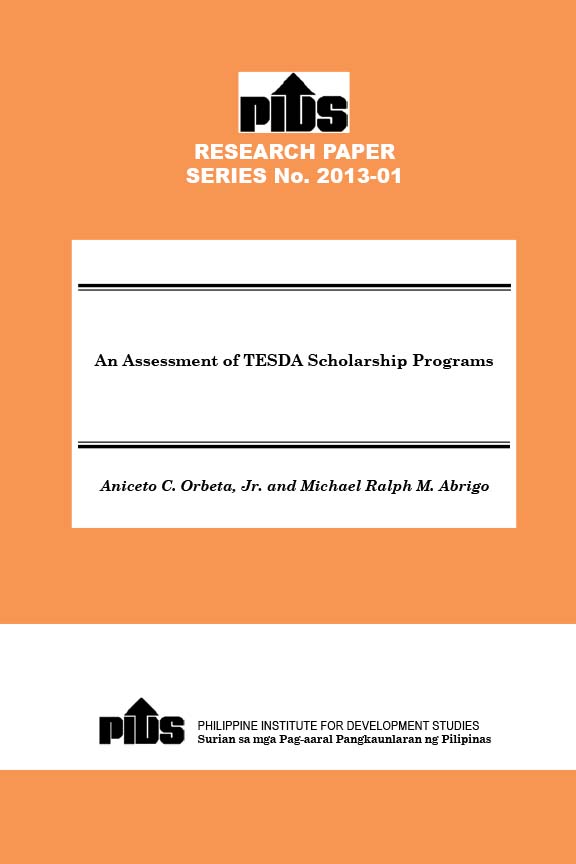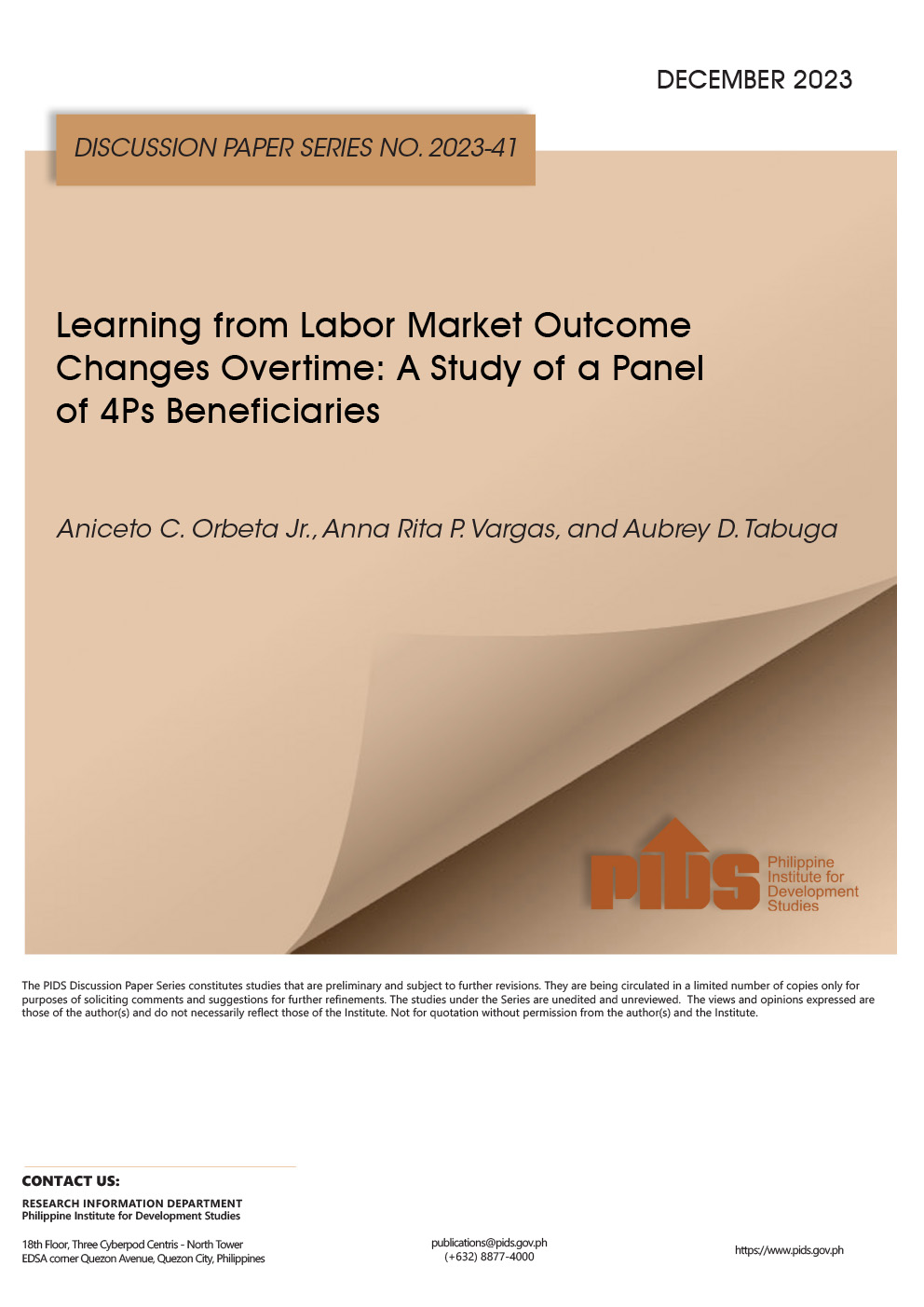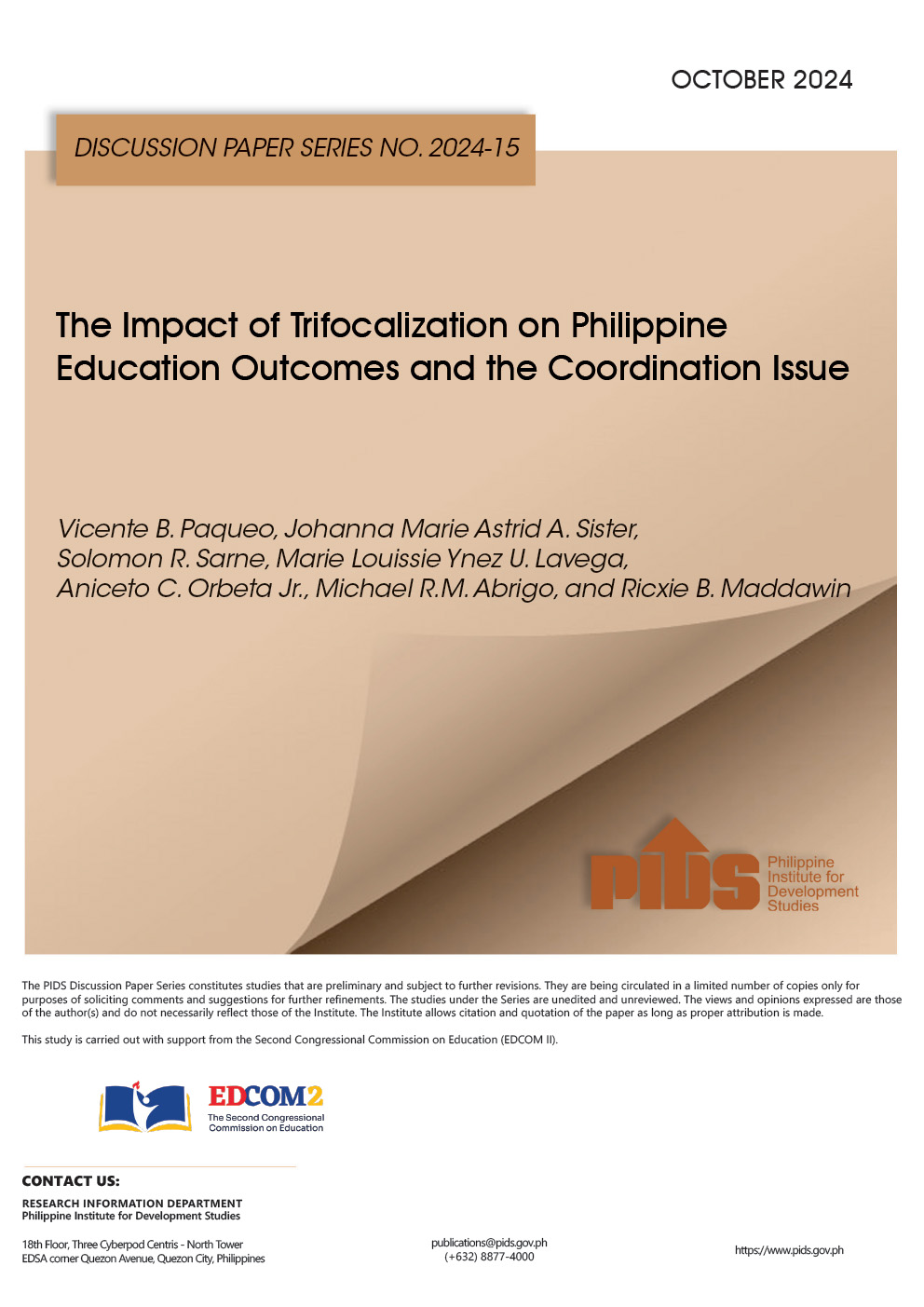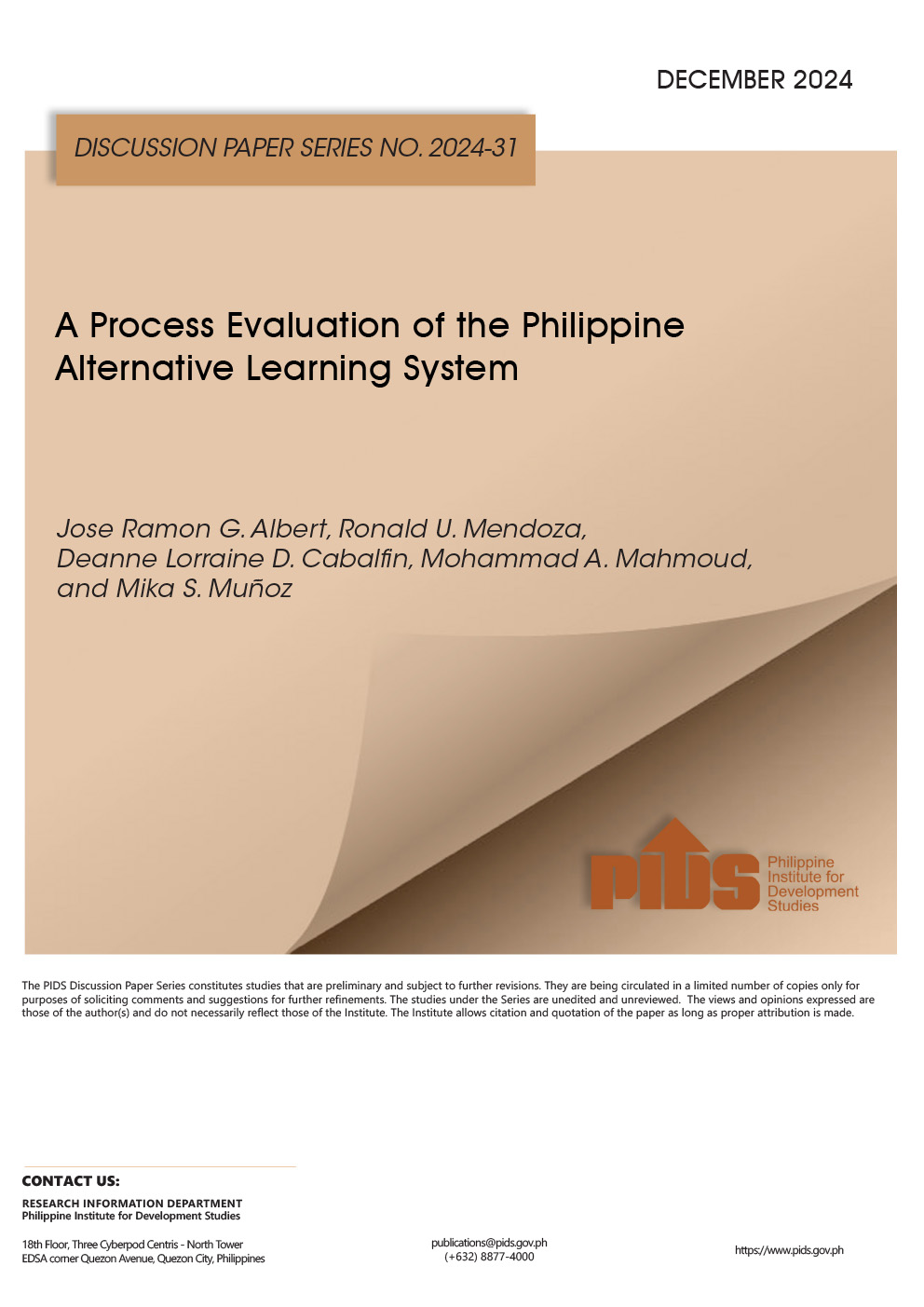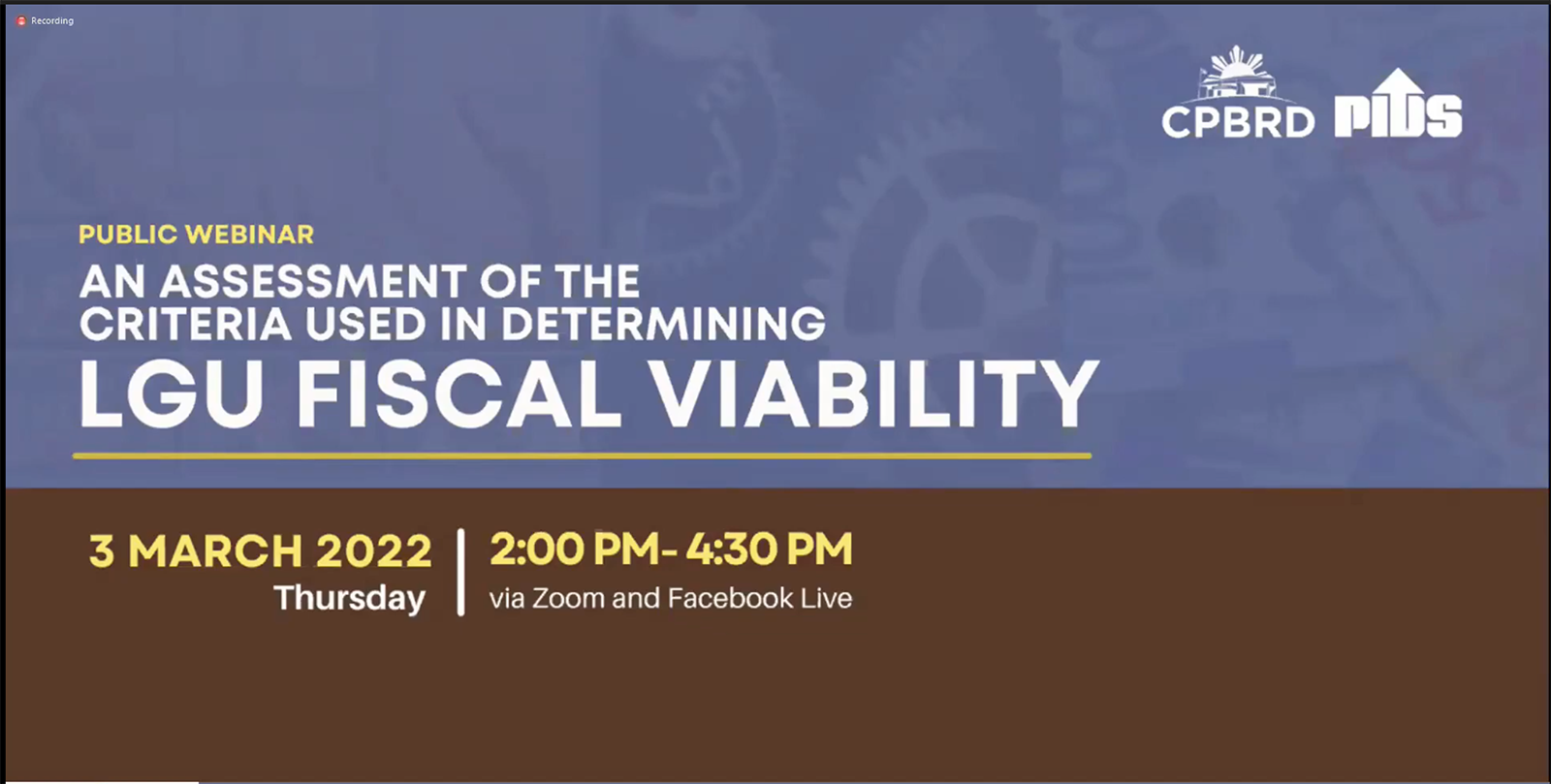This paper reports on the results of the review of the two major scholarship programs of the Technical Education and Skills Development Authority (TESDA), namely: (a) the Training for Work Scholarship Program (TWSP); and (b) the Private Education Student Financial Assistance (PESFA). The two scholarship programs accounted for 73 percent of scholars among the technical vocational education and training (TVET) graduates in 2007 (TESDA 2010a). The paper was commissioned by the Department of Budget and Management to be an input to the effort of the Philippine government to improve the policy basis and result orientation of the budgeting process.
The primary objectives of the study are to determine (a) internal efficiency (through the drop-out rate); and (b) external efficiency (through the rate of employment) of scholars of the TESDA technical vocational scholarship programs. Given limited time and resources, the study had to rely on data generated by TESDA. In particular, it did a re-analysis of the 2008 Impact Evaluation Study (IES) survey data to generate empirical evidence on the various issues of the study. It also used data from reports regularly submitted by the technical vocational institutions (TVIs) to TESDA for one region–the National Capital Region. This particular data set is the primary source of official TVET statistics. Administrative data from the implementing units of the scholarship programs were also used. In addition to these data sets, three separate focus group discussions involving relevant decisionmakers were also done. One was with national TESDA officials, another with the regional TESDA officials, and third was with the officials of the TVIs and TVI employers.
The assessment shows that the scholarship programs are performing well in terms of internal efficiency as indicated by the high graduation rates particularly in recent years. They are not performing well though in terms of external efficiency, as indicated by low employment rate. It is important to emphasize, however, that the scholars, particularly PESFA scholars (but not TWSP scholars) are performing slightly better compared with nonscholars in terms employment. It appears that the low external efficiency performance is a general TVET sector problem and not a problem specific to the scholarship programs.
Citations
This publication has been cited 3 times
- Orbeta, Aniceto C. Jr. and Vicente B. Paqueo. 2018. Countering the discriminatory impact of minimum wages against disadvantaged workers: Literature review and experimental design development. Working Papers id:12861. eSocialSciences.
- Orbeta, Aniceto Jr. C. and Emmanuel Esguerra. 2016. The national system of technical vocational education and training in the Philippines: Review and reform ideas. Discussion Papers DP 2016-07. Philippine Institute for Development Studies.
- World Bank. 2016. Republic of the Philippines labor market review. World Bank Publications - Reports 24768. The World Bank Group.

